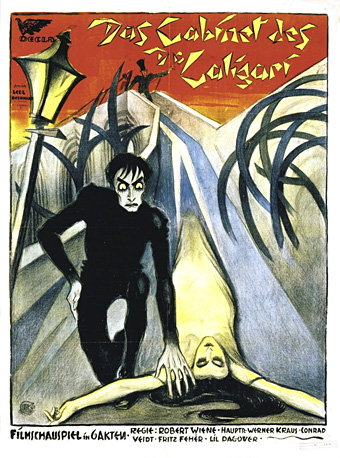
• The late David Roback was a musician who would have been called “enigmatic” for his refusal of the interview treadmill, preferring instead to let his music speak for itself. I wouldn’t label myself a “fan” (a word I dislike at the best of times) but over the years I’ve collected just about everything that Roback was involved in, from the early Rain Parade albums (he co-wrote my favourite song of theirs, No Easy Way Down), to Opal (his collaboration with Kendra Smith and others), and Mazzy Star (with Hope Sandoval), the group whose songs perfected the somnolent blend of blues, country and rock that Roback had been aiming at all along. Some concerts:
• Mazzy Star, The Black Sessions, Maison De La Radio, Paris, October 25, 1993
• Mazzy Star at the The Metro, Chicago, November 12, 1994
• Mazzy Star, KROQ Radio, Los Angeles, December 10, 1994
• “Like other early-modern architects, Lequeu’s drawings explore analogies between bodies and buildings and the erotic, multisensory dimensions of architectural design. In his annotations, he often describes in compulsive detail not only how buildings look but also how they feel, smell, and even taste.” Meredith Martin on the architecture of Jean-Jacques Lequeu.
• “She talks avidly about using pigs’ heads, plastic doll parts, fake blood, and real blood, recollecting with relish a performance where she transformed into a Statue of Liberty that projectile-vomited gore onto the audience…” Geeta Dayal on the performance art of Johanna Went.
Schütte teases out the many ambiguities in these concepts: trains, autobahns, radioactivity, men-machines. All have distinct negative connotations within Germany in particular. Yet Kraftwerk proposed a positive view. Their rigorous determination to deny autobiography forced listeners to focus on the ideas and the music, where apparent contradictions—local/global, human/machine, past/future—were resolved in a sparkling, crystal-clear sound-world. This was not submission but interaction: as they said, “we are playing the machines, the machines play us”.
Jon Savage reviews Kraftwerk by Uwe Schütte
• “…it was clear that Miles wasn’t sure what he wanted…but he knew what he didn’t want. He didn’t want anything like what he had done before.” John McLaughlin on the recording of Bitches Brew by Miles Davis.
• “His panels are littered with figures standing on the edge of crowds, watching.” Toby Ferris on the paintings of Pieter Bruegel.
• Alex Barrett on 100 years of The Cabinet of Dr. Caligari.
• A Boy Called Conjuror by Teleplasmiste.
• At Dennis Cooper’s: Fires.
• Picture P. Brueghel “Winter” / Solaris (1972) by Edward Artemyev | The Dream Dance Of Jane And The Somnambulist (1981) by Bill Nelson | St. Elmo’s Fire (1998) by Uilab

I was surprised and saddened by David Roback’s death. He’s my age! I’ve loved his work since Rain Parade and have it all. Actually saw Mazzy Star in concert long ago – opening for Cocteau Twins! Roback also recorded some songs with another one of my faves, Etienne Daho, but I don’t think they were ever released. Am currently listening to his songs with Maggie Cheung from the movie “Clean”. As much as I love Ms. Cheung, Roback is the best thing about those tracks. At any rate, he will be missed by many.
Fingers crossed that the new book might finally do some justice to the depth and breadth of Kraftwerk’s contribution to culture. And the Miles Davis film does look promising, again I’m hopeful. After all these years, I’m still puzzled by the lack of intellectual attention paid to popular music in comparison to the fine arts.
Pat Metheny has just released his first new album in four years (with a song featuring Me’shell Ndegéocello); Cassandra Wilson also has a new album coming, the first in five long years; the Eno brothers’ record is out soon I think. It’s shaping up to be a good year – music as balm in the face of all the horror in the world.
PS and how could I forget the imminent reissue of Jon Hassell’s delightful debut in the original cover design and hopes of his releasing Listening to Pictures Part 2 in the summer.
Thom: I never got to see Roback in any of his groups although I think by the time the Rain Parade played here he’d already left. Green On Red were the only group I saw from the Paisley Underground, and they weren’t very memorable.
Colin: I don’t read many music books at all–I’d usually rather listen to the music–but Kraftwerk are a cult favourite so I’m more than usually interested in the new book. I have an earlier study by an ex-Mixmag journalist which is okay for the anecdotal material but is rather slight otherwise.
Hello John, I can report back that I think the new Kraftwerk book isn’t bad, but nor is it a particularly great read – although it’s better than the other two books I’ve read in conveying an overview of their career and their focus on the endless touring and repackaging. A key problem is that the authors can’t match the elegance and beauty of their subject’s work in their own prose. I’d also like to see more in-depth analysis along the lines of ‘Kraftwerk, capitalism and neoliberalism’, ‘Kraftwerk, a psychoanalytic account’ and ‘Kraftwerk: remake/remodel, the production of legacy’. I’m sure there’s a PhD in there somewhere!